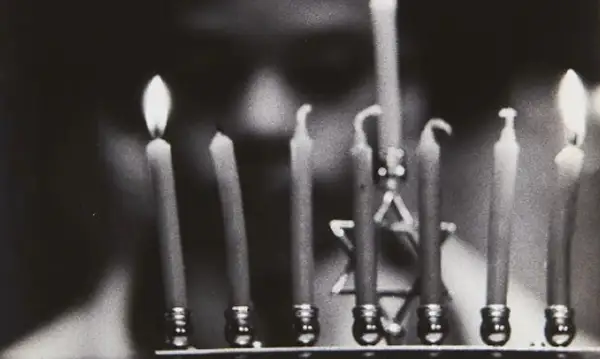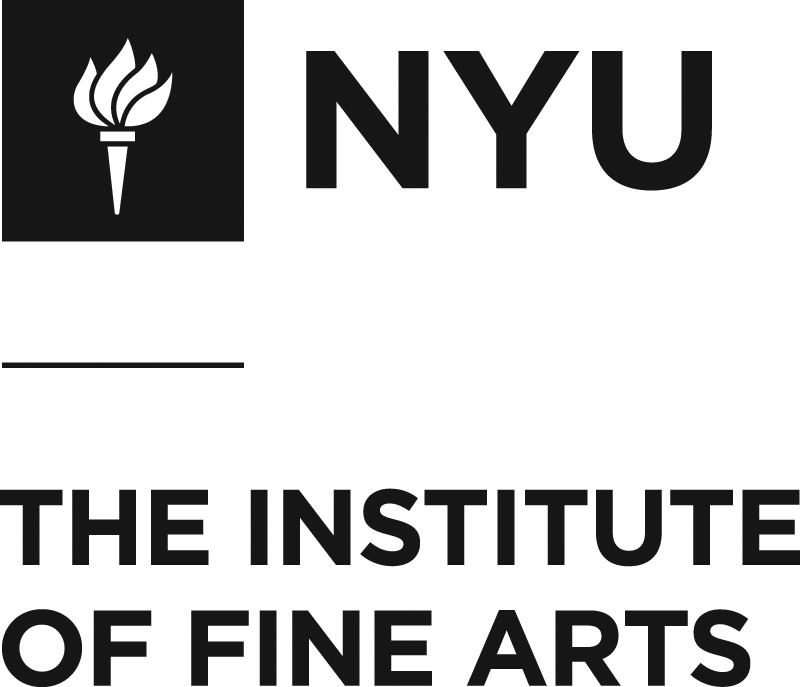Public Programs @ the Institute
Series: New Directions in Photography
Matthew Biro, University of Michigan
Black Jews, Jewish Photographers: Photography, Fluidity, and Distinctiveness
Thursday, September 4, 2025, 6:00-8:00pm
Watch Maththew Biro's talk Online
In 1964, Jewish-American photographer Lawrence Shustak published a signed portfolio of photographs, Black Jews, in a limited edition of 150 copies. Comprising 12 mounted gelatin silver photographs of varying sizes and orientations, it presented portraits and tableaus taken around 1960, images that depict congregants in a Harlem synagogue founded by Rabbi Wentworth Arthur Matthew in 1919, originally as a Christian church. Known as the “Commandment Keepers” or “Royal Order of Ethiopian Hebrews,” Matthew’s synagogue was an important center of Black autonomy and self-determination in New York for more than 40 years. It supported a yeshiva and promoted Black-owned businesses (possibly a kosher food market and a tailor). Over the decades, Matthew had become known as a powerful advocate for the idea that African Americans were the true descendants of the ancient Israelites. He was influenced by the radical politics and organizing of Marcus Garvey, the Pan-Africanist leader prominent in the Harlem Renaissance milieu in which Matthew first founded his church; and Rabbi Matthew consistently framed Ethiopian Hebrew identity as a pathway to spiritual salvation as well as racial self-determination.
Although Shustak’s portfolio presents a positive and ennobling image of the synagogue’s congregants, depicting them as anonymous figures of intense spiritual devotion and focus, it does not strongly emphasize Matthew’s broader racial project of Ethiopian Hebrew identity. Instead, it focuses on the congregants as talented performers of Jewish rituals, African Americans who ntegrate their physical Blackness with Jewish cultural forms, thereby undermining racial hierarchies and distinctions. In my talk, I will contrast Shustak’s photographic construction of racial fluidity and intermixing—as depicted through some (but not all) of his Black subjects— with Matthew’s decades long racial project of Ethiopian Hebrew identity, which the rabbi wrote about in pamphlets, sermons, and educational texts. As part of this project, Matthew collaborated with photographers and news services, allowing his congregation to be documented at different times since the 1920s. As we shall see, Matthew tried to employ photography to emphasize Ethiopian Hebrew distinctiveness and excellence, while Shustak’s photographs, on the other hand, accentuate racial fluidity and Black-Jewish intermixing. These differences, I will argue, reflect the dissimilar positions that Matthew and Shustak occupied in the social and political hierarchies that structured New York between the 1930s and the 1960s as well as changing attitudes in U.S. social documentary aesthetics.
Matthew Biro is Professor of Modern and Contemporary Art in the Department of the History of Art at the University of Michigan. He is the author of Anselm Kiefer and the Philosophy of Martin Heidegger (Cambridge University Press, 1998), The Dada Cyborg: Visions of the New Human in Weimar Berlin (University of Minnesota Press, 2009), Anselm Kiefer (Phaidon Press, 2013), and Robert Heinecken and the Art of Appropriation (University of Minnesota Press, 2022). In addition to his publications in academic books and journals, he has also written essays and reviews on contemporary art, film, and photography for a variety of magazines, including Artforum, Art in America, The Brooklyn Rail, Contemporary, Art Papers, and The New Art Examiner.
*The Institute of Fine Arts provides reasonable accommodations to people with disabilities. Requests for accommodations for events should be made at least two weeks before the date event. Please email ifa.events@nyu.edu for assistance.
As a participant in our public programs, we ask that you review and abide by the Institute's Community Standards Policy which provides for a positive and educational experience for all of our guests.

